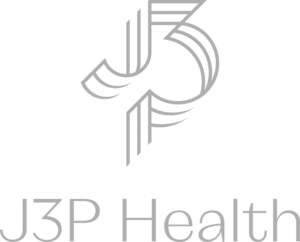The concept of peer review within healthcare service lines can be likened to a type of preventive maintenance, much like hospital equipment that involves regularly-scheduled check-ups to avoid a costly fix. Because, why wait for an event to trigger an investigative review and subsequent expensive repair or replacement? In many situations the “retrospective” review comes at an already associated high cost, something that could have been prevented with ongoing and consistent maintenance.
Corazon believes it becomes of greater advantage to take a proactive approach, and set into action ongoing preventive maintenance…but with your physicians! This is particularly critical in our industry because clinically, patient lives and outcomes are at stake, not to mention the operational or financial impact on a program when quality is on the decline and only managed after the fact. As an experienced healthcare professional, and in leading the accreditation business unit for Corazon, I find it not only impressive, but consider it as meeting or exceeding best practice when programs enact a formal external peer review process ahead of any adverse outcomes.
For the cardiovascular service line, this is increasingly significant. Not only does this service line generate upwards of 40% of overall hospital revenue, but it also comes under great scrutiny. Thus, in many circumstances, retrospective external peer review is initiated, but long after the situation has passed. And, in consideration of what we’ve learned over the last decade with the inception and continued evolution of appropriate use criteria and appropriate case selection, it is of greatest benefit for cardiovascular service line leaders to take on a proactive approach to peer review, and to consider the advantages of doing so.
Advantages Include:
-
- Proactive Troubleshooting
- Enhanced Quality
- Ongoing Education
- Skills Advancement
- Outside Perspective
For many cardiovascular and other service line leaders, the decision for an external peer review can be an easy one; it removes the burden from practicing physicians as to their objectivity of a specific case, or peer, and allows for an outside expert, non-biased review. External peer review does come at a cost, but so does the risk of poor community perception of a program, patient, or physician. In fact, the loss of reputation and subsequent loss of volume as a worst-case scenario would be far MORE costly than the expense of regular quality reviews.
Engaging in an ongoing external peer review process can be considered preventive maintenance that allows for, if and when indicated, refinement or change in practice—proactively before any adverse incident takes place. Knowing that someone is keeping an eye on “best practice” and appropriate patient care can be reassuring… and if an issue does arise, it will be brought to attention quicker and resolved quicker.
To share the physician perspective on peer review, Corazon, Inc. talked with Steven Harrington, MD, MBA.
Dr. Harrington is a retired cardiothoracic surgeon and former medical director of cardiothoracic surgery at Henry Ford Macomb Hospital in Clinton Township, Michigan. He serves as one of Corazon’s Medical Advisors, and contributes to Corazon’s Accreditation division as a peer/case reviewer for clients. He remains active in the Michigan Society of Cardiovascular and Thoracic Surgeon’s Quality Collaborative performing site reviews, and is currently participating in a multicenter research project investigating the use of AI to evaluate surgeon performance in the OR. He is also an active member of the STS Patient Safety Committee, co-chairing its symposium at the 2019 annual meeting, and has joined the Task Force for Quality Initiatives as a site reviewer in a national pilot program.
Responses have been edited for clarity & length.
Corazon: What is your perception of the term “peer review?”
Dr. Steven Harrington: The term varies so much in the industry. In some ways, it deals with individual physician review. In others, it relates to all aspects of data review. I believe that a peer review narrows down to an individual physician review, individual physician performance, and using data and science to evaluate it by other physicians of similar qualifications.
C: When would a program want a broader review performed, that goes beyond the individual physician?
SH: A case or program review focuses more broadly and provides a much more expansive look at a patient’s episode of care, or even the overall performance of a program. The focus shifts away from the individual physician and instead, focuses more on how all groups worked together to provide care, both pre- and post-operation. Of course, the physician plays a big role in team performance and takes much of the responsibility for the outcomes. Broader reviews such as these focus on how the entire team work together. Program reviews are vitally important for a program to develop their team approach to care.
C: Today, what generally causes a facility to seek an outside entity to perform a peer review?
SH: If a program has a small number of providers, or if are falling short on benchmark performance indicators then they should opt for an outside review to ensure that the cases are being reviewed from a neutral and unbiased perspective. Secondly, any adverse outcome should prompt a review to be performed. In the latter case, the cause for the peer review is done reactively, which generally gives the feeling of punishment to the review. To embrace case and peer reviews, the program should focus on being proactive instead of reactive. Unfortunately, we all can become blinded by our daily routines and fail to see pitfalls in time. Utilizing an outside review may better provide that oversight to identify potential areas of concern.
C: Why is peer review so important?
SH: Peer review is important because it helps a program to figure out how to fix certain problems – in some cases, before they happen – by having an unbiased look at how their program is operating. This is important for providers to ensure that their patients are receiving the best quality care possible.
C: What are the opportunities for peer review in the industry?
SH: In the 40+ years that I have been a surgeon, I have rarely ever had another surgeon in the OR with me, and definitely not to evaluate my skills. There is no continual practical evaluation in medicine that I’m aware of – definitely not in cardiothoracic surgery. I believe that there is a great opportunity here for medicine to embrace proactive peer reviews to identify potential problems before they happen. Having an outside entity review the program on a preventative and constructive basis is critical for the review to be embraced. Shifting the focus to embrace the positive outcomes before the negative outcomes happen is important.
C: What are the benefits to choosing a niched firm to provide a case or peer review?
SH: I would look to a niched firm to provide a peer review because these companies have a precise focus and experiential knowledge-base from which they are able to draw to provide the highest quality evidence-based review.

 company
company 
 (412) 364-8200
(412) 364-8200

























